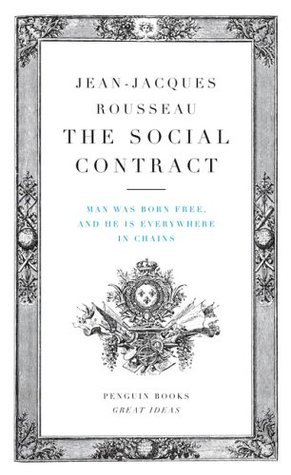
Confessions
Book Description
Unleash the inner turmoil of a man who dares to bare his soul. In 'Confessions,' Jean-Jacques Rousseau plunges into the depths of his passions, fears, and scandals, revealing a life defined by both desire and isolation. He wrestles with the expectations of society, the weight of love, and the haunting shadows of his misdeeds. Each intimate revelation pulls you deeper into his world, where vulnerability clashes with ambition, and truth feels like an unquenchable thirst. Can one man's raw honesty change the very fabric of self-perception and society’s gaze?
Quick Book Summary
"Confessions" by Jean-Jacques Rousseau is a groundbreaking autobiography that invites readers into the tumultuous psyche of one of the Enlightenment's greatest thinkers. Rousseau chronicles his life with candor, exposing his flaws, passions, and the formative experiences that shaped his philosophy and character. Blending self-examination with cultural critique, he examines his relationships, personal failures, and ongoing conflicts with society and authority. Across his narrative, Rousseau breaks from traditional self-justification, instead seeking to present his inner self truthfully, warts and all. The book marked a significant departure in autobiographical writing, prioritizing the subjective truth of one's experience over mere factual recounting. "Confessions," in its radical honesty, paved the way for modern introspection and transformed how individuals grapple with identity, morality, and the gaze of others.
Summary of Key Ideas
Table of Contents
Radical Honesty and Self-Examination
Rousseau's work begins with his radical determination to present himself fully and truthfully, defying convention by sharing details that would have been deemed shameful or private. He positions his autobiography as an act of self-exposure rather than self-defense, confronting both personal failings and moments of joy or insight. This approach broke from his august predecessors, offering a model of autobiography rooted in psychological depth rather than the celebration of outward achievements.
Society, Isolation, and Alienation
Childhood and early experiences play a central role in Rousseau’s narrative. He reflects on formative moments—his mother's death, his relationships with caretakers, and his early encounters with authority and education. Rousseau links these memories to the evolution of his character and his perennial sense of vulnerability. His vivid recollections enable him to trace the origins of his eccentricities, passions, and values, highlighting how a child's environment can affect their adult worldview and relationships.
Childhood, Memory, and Personal Formation
As Rousseau matures, he grapples with the tension between his profound longing for acceptance and the isolating effects of his individuality. He often finds himself at odds with social norms, feeling both rejected by and superior to the society around him. This sense of alienation becomes a key theme, as he describes the misunderstandings and betrayals that push him into solitude. His self-imposed isolation also intensifies his introspective habits, further distancing him from others but deepening his philosophical insights.
Love, Friendship, and Betrayal
The complexities of love and friendship shape Rousseau’s emotional landscape. He delves into his intense attachments, both romantic and platonic, recounting instances of ardor, jealousy, and disillusionment. Notable are his relationships with figures like Madame de Warens, whose influence is profound and lasting. Rousseau does not shy away from exploring his own jealousies, self-doubt, and failures in love, emphasizing how human connection can be both redemptive and destructive to the self.
The Struggle for Authenticity and Truth
Ultimately, "Confessions" serves as both a quest for authenticity and a plea for understanding. Rousseau strives to reconcile the contradictions within himself—his desire for sympathy and his urge to withdraw, his intellectual pride and sense of inadequacy. The act of confessing becomes a means of laying bare the essence of human complexity, seeking to connect with others by sharing his own vulnerability. This raw honesty—paradoxically both self-justifying and self-condemning—sets a precedent for later autobiographical and psychological literature, cementing Rousseau’s enduring literary and philosophical legacy.
Download This Summary
Get a free PDF of this summary instantly — no email required.





